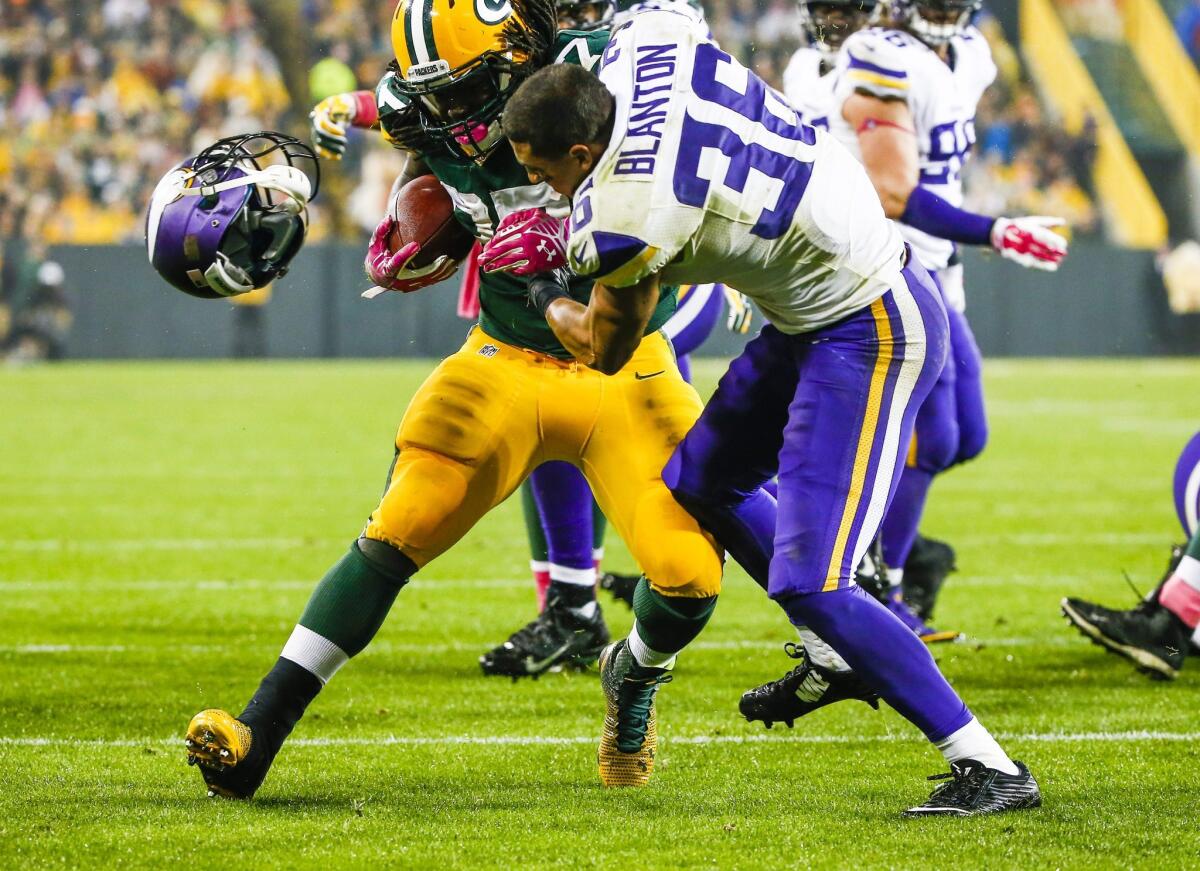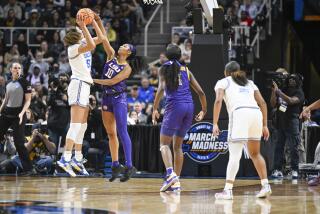Opinion: Hate football? Or maybe the real problem is maleness

Steve Almond doesn’t like football anymore. He’s upset because football players sometimes get injured. He’s upset because football players sometimes engage in off-the-field criminal or quasi-criminal acts. Mainly, he’s upset because football is a masculine sport played by men and enjoyed by men.
Almond’s most recent overheated grousings appear here in The Times’ Opinion pages, “Boycotting the Football Industrial Complex” and “For NFL to Change, It’s Up to Us to Confront the Sport’s Moral Hazards,” and also in Salon in a Sept. 28 article in which, eager to demonstrate his feminist street-cred, he blasts football as “flagrantly misogynistic” -- actually, “the most brutally misogynistic sport ever created,” as the hysterical subheadline reads.
Let’s examine Almond’s contentions:
1. Injuries. Football is a contact sport, and contact sports result in injuries. So do a range of non-contact sports, from skiing to horse racing. At least football players don’t get killed in action the way race car drivers sometimes do (although perhaps Almond would like to ban that sport too). Many sports are dangerous, and part of the glory for participants is the risk. Even “idyllic” baseball presents the threat of getting smacked in the face by a 100-mile-an-hour fastball.
Almond makes much of an actuarial report prepared as part of a settlement in a suit brought by injured players against the NFL. The report estimated that three out of every 10 professional football players would suffer brain damage. But, as NFL lawyer Brad Karp explained to the New York Times, the estimate purposely exaggerated the number of future injuries in order to ensure that the settlement amount would be large enough to cover all contingencies.
2. Bad behavior. Almond focuses on two -- count ‘em -- incidents of violence involving NFL players: former Baltimore Ravens running back Ray Rice’s video-captured slugging of his then-fiancée (now wife) Janay, and Minnesota Vikings running back Adrian Peterson’s indictment for allegedly beating his 4-year-old son bloody with a switch. Almond also throws in NFL Commissioner Roger Goodell, who allegedly covered up the Rice incident. But the NFL has already suspended Rice for life and is considering discipline against Peterson. This is as it should be. Violent assault is conduct unbecoming a professional athlete. As for Goodell, when last I looked, the NFL owners were considering firing him if the allegations prove true.
Furthermore, neither of the above incidents had anything to do with playing football. Rather, they are among the thousands of incidents of domestic violence and child abuse that unfortunately occur on a regular basis throughout the country and usually among men who are not professional football players (ask any lawyer who practices in family court). Almond’s beef is with the dark side of human nature, not the NFL.
3. Misogyny. “[H]ow do you justify glorifying a game that defines men as heroically violent warriors and women as sexual ornaments who jiggle on the sidelines?” Almond writes in Salon. Those “sexual ornaments” would be the NFL cheerleaders. Almond doesn’t approve of them, either.
He writes: “I understand why football exerts such a powerful grip on men. The game is an exalted cult of hyper-masculinity, a place of refuge where dudes can escape the moral complexities and disappointments of adulthood, where heroism is defined as courageous and brutal and, above all, male.”
Well, duh.
Football -- surprise, surprise -- is a male game. It’s basically, like other team sports -- and men gravitate toward team sports -- a version of war. It affords opportunities for heroism (the “courageous” part) because men venerate heroism as a positive channeling of the aggressiveness and competitiveness that are part of masculine nature. It’s “brutal” because it’s played by men, who are generally exponentially stronger than women. It’s also enormously complex strategically, which appeals to men’s facility for spatial reasoning. It’s chess (another overwhelmingly male game) with live bodies. I’m fascinated by the detailed conversations about the nearly impossible intricacies of plays that I overhear from the male cashiers at my neighborhood Safeway every Monday morning after an NFL game.
And of course it’s an “escape”! Watching a game is supposed to be recreation!
Almond says in Salon that he doesn’t want his daughters to watch “a game that ultimately degrades them.” That is, he doesn’t want his daughters to appreciate masculinity -- or presumably, his sons, either, if he had sons. Almond’s problem isn’t with football. It’s with maleness itself.
Charlotte Allen writes frequently about feminism, politics and religion. Follow her on Twitter @MeanCharlotte.
Follow the Opinion section on Twitter @latimesopinion
More to Read
A cure for the common opinion
Get thought-provoking perspectives with our weekly newsletter.
You may occasionally receive promotional content from the Los Angeles Times.










